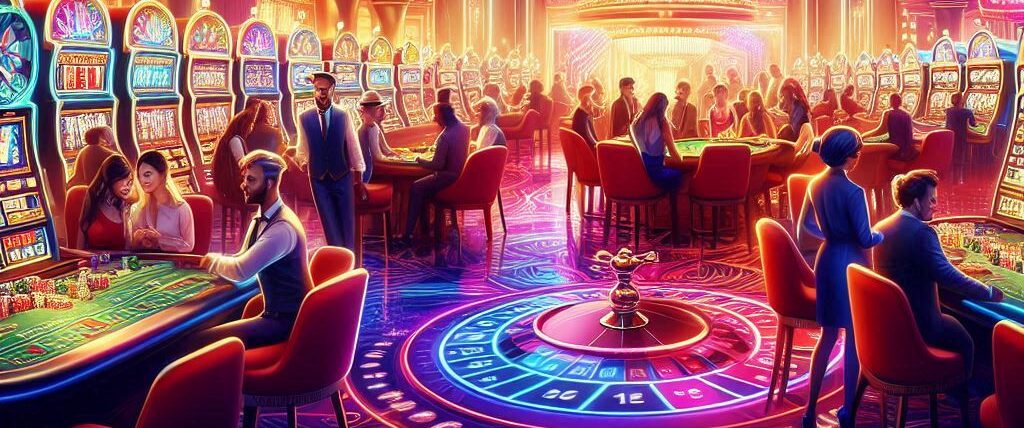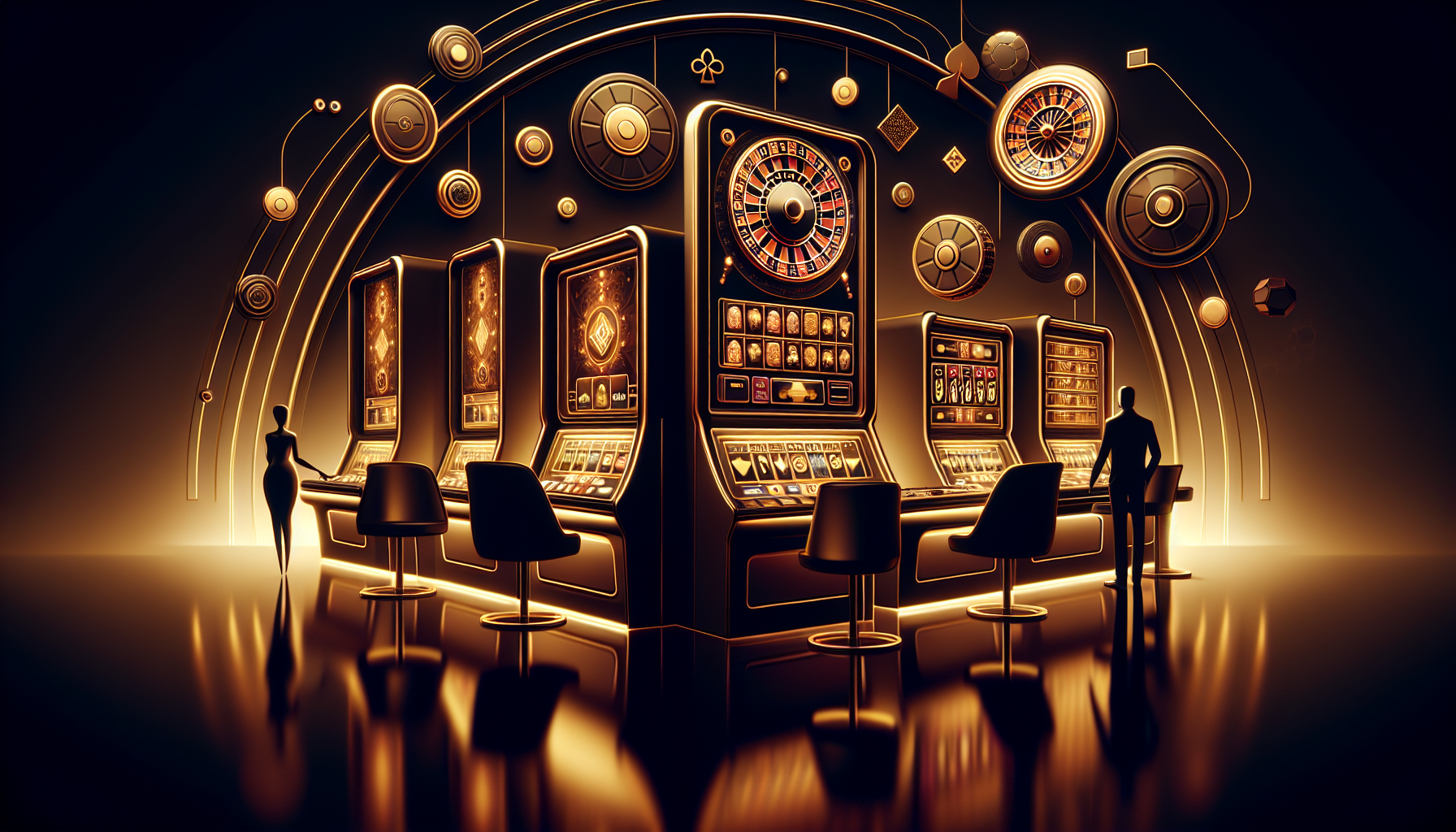
Convenience reigns supreme, and the gambling industry is no exception. Welcome to the fascinating world of 24/7 casinos, where the doors never close, and there’s always a ready seat for anyone feeling lucky.
It’s 3 AM, and you can’t sleep. Instead of tossing and turning, you decide to head to your local casino. The lights are bright, the slot machines are buzzing, and the dealers are ready to deal. This is the reality of 24/7 casinos—they never close, offering unparalleled convenience for gamblers.
From live shows to gourmet dining to spa services, having a casino open 24/7 means that entertainment and relaxation are always within reach. This is especially appealing for tourists and locals looking for a place to unwind at odd hours.
Psychological Effects of Nonstop Gambling
One of the most potent aspects of 24/7 casinos is the uninterrupted thrill. The continuous availability can heighten the excitement and suspense. For some, knowing they can gamble at any time feeds their adrenaline rush. However, this also brings forth potential downsides.
The constant opportunity to gamble increases the risk of developing a gambling addiction. Nonstop gambling can quickly escalate from a fun pastime into a dangerous habit. The availability of gambling activities at all hours may encourage players to chase losses or stay longer than they intended, feeding into a cycle that’s hard to break.
Apart from addiction, the perpetual gambling environment can strain mental health. Lack of sleep, financial stress, and the emotional ups and downs of winning and losing can take a toll. Mood disorders, anxiety, and depression are all potential risks.
Social Effects of 24-Hour Gambling
Continuous gambling can impact families and relationships. Late-night gambling sessions can lead to conflicts with loved ones and diminish quality time spent together. The need to be constantly involved in gambling can strain relationships and create trust issues.
Persistent gambling often results in financial troubles. The temptation to gamble around the clock may push players to spend beyond their means, accumulate debts, or even engage in illegal activities to fund their habits.
How Casinos Operate 24/7
Running a 24-hour operation requires meticulous staff management. Casinos employ shifts to ensure that there are always fresh, energetic employees on the floor. Dealers, security, maintenance workers, and managers work in rotations to guarantee smooth operations non-stop.
Safety is paramount in 24/7 casinos. With a constant influx of people, security is bolstered to prevent theft, fraud, and other illicit activities. State-of-the-art surveillance systems, coupled with trained security personnel, ensure a safe environment for gamblers and staff alike.
Regular maintenance checks and cleaning schedules are implemented around the clock to keep the casino’s appearance pristine. This ensures a pleasant experience for every visitor, no matter the time of day or night.
The Industry Impact of Nonstop Gambling
24/7 casinos create a plethora of job opportunities and stimulate local economies. The constant flow of patrons means sustained revenue, which can be considerable for the casino and the local community.
Each casino strives to offer better experiences, promotions, and services to entice players. This can lead to innovation in the industry, with more creative themes, cutting-edge technologies, and unique entertainment options emerging.
Regulation and compliance form the backbone of operating 24/7 casinos, ensuring that these establishments adhere to stringent standards and maintain the integrity of their operations. Every facet of casino activity is subject to rigorous scrutiny to guarantee that players are treated fairly and that the games are conducted honestly. This includes ensuring that the random number generators (RNGs) used in digital games are genuinely random and not manipulated, maintaining the fairness of the games.
Casinos must implement measures to protect players from the harmful effects of gambling addiction. This entails having visible and accessible resources for problem gamblers, enforcing age restrictions to prevent underage gambling, and providing options for self-exclusion, where players can voluntarily ban themselves from the casino for a specified period.
With substantial sums of money changing hands and personal data being collected, casinos are appealing targets for criminal activities. Therefore, advanced security systems, including surveillance cameras, secure payment methods, and trained security personnel, are essential to deter and detect fraud and theft.
Regulatory bodies play an indispensable role in this ecosystem. These organizations, such as the Nevada Gaming Control Board in the United States or the UK Gambling Commission, conduct regular audits and provide oversight to ensure compliance with laws and regulations. They investigate complaints, enforce regulations, and hold casinos accountable for breaches, thereby safeguarding player interests and maintaining public trust in the gaming industry.
Responsible Gambling Measures
Regulation and compliance form the backbone of operating 24/7 casinos, ensuring that these establishments adhere to stringent standards and maintain the integrity of their operations. Every facet of casino activity is subject to rigorous scrutiny to guarantee that players are treated fairly and that the games are conducted honestly. This includes ensuring that the random number generators (RNGs) used in digital games are genuinely random and not manipulated, thereby maintaining the fairness of the games. Regular checks and certifications by independent third-party organizations often ensure that the RNGs comply with industry standards.
Casinos must implement measures to protect players from the harmful effects of gambling addiction. This entails having visible and accessible resources for problem gamblers, including hotlines, support groups, and counseling services. Additionally, casinos are required to enforce age restrictions to prevent underage gambling, often through strict identification checks at entry points. They provide options for self-exclusion, where players can voluntarily ban themselves from the casino for a specified period. Many casinos also have trained staff who can recognize the signs of problem gambling and intervene when necessary.
With substantial sums of money changing hands and personal data being collected, casinos are appealing targets for criminal activities such as fraud, identity theft, and physical theft. Therefore, security systems, including high-definition surveillance cameras, biometric identification, secure payment methods, and trained security personnel, are essential to deter and detect fraud and theft. Cybersecurity measures, such as encryption and firewalls, are also crucial to protect sensitive customer information and financial transactions.
Regulatory bodies play an indispensable in this ecosystem. These organizations, such as the Nevada Gaming Control Board in the United States or the UK Gambling Commission, conduct regular audits and provide oversight to ensure compliance with laws and regulations. They investigate complaints, enforce regulations, and hold casinos accountable for breaches, thereby safeguarding player interests and maintaining public trust in gaming industry.

